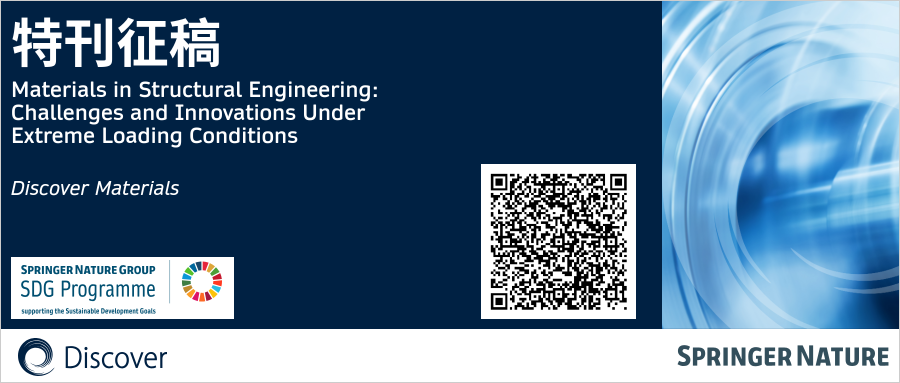Discover Materials is an open access journal publishing research across all fields relevant to materials, and areas where materials are activators for innovation and disruption.

In the realm of materials science and engineering, the quest for robust, resilient materials capable of withstanding extreme loading conditions is more pressing than ever. The field of structural engineering, at the forefront of this endeavor, faces constant challenges posed by natural disasters, industrial accidents, and deliberate acts of violence. The ability of structures to endure such events depends crucially on the properties and performance of the materials from which they are constructed. Discover Materials, as part of the Discover journal series committed to advancing materials research, provides an ideal platform for addressing these challenges and exploring innovative solutions.
The proposed topical collection, titled "Materials in Structural Engineering: Challenges and Innovations under Extreme Loading Conditions," aims to delve deeply into the intersection of materials science and structural resilience. This collection is driven by the urgent need to develop materials that can withstand diverse forms of extreme loading, including blast and impact forces, while maintaining structural integrity. Real-world scenarios underscore the importance of this research: from safeguarding critical infrastructure against terrorist attacks to preparing communities for natural disasters like earthquakes and hurricanes, the resilience of materials directly impacts public safety and economic stability.
This collection will encompass a diverse array of topics essential to advancing our understanding and capabilities in structural engineering. Key themes include but are not limited to:
(1) Experimental studies on the behavior of structural materials subjected to blast and impact forces, aiming to uncover fundamental mechanisms and develop protective measures;
(2) Analytical modeling approaches to simulate and predict the response of structures under extreme loading conditions, facilitating the design of resilient systems;
(3) Numerical simulations that leverage advanced computational methods to model complex interactions between materials and dynamic forces;
(4) Application of machine learning techniques to analyze vast datasets and extract actionable insights for enhancing structural resilience.
Submission Deadline: 31 March 2026
More details, please visit: https://link.springer.com/collections/ecabjebgde
Note: All submissions selected by or recommended from CESST2025 will enjoy a 20% discount APC fee.
